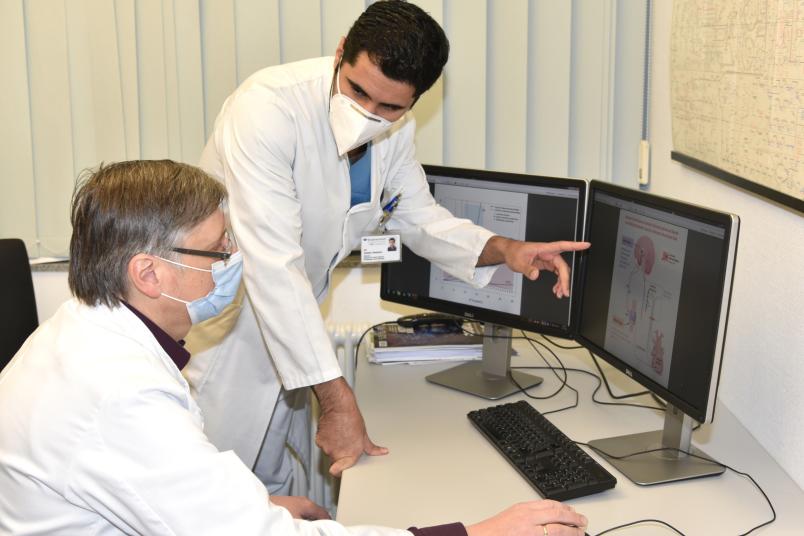
Medicine
How thyroid function affects stress-related heart problems
Researchers have found a new hypothesis for explaining Takotsubo cardiomyopathy, also known as broken heart syndrome.
Chest pain, shortness of breath, heart flutter and palpitations: these symptoms are not only characteristic of a heart attack, but can also be caused by another, as yet little researched condition. So-called Takotsubo cardiomyopathy is a rare but life-threatening disease of the heart that can occur during extreme stress events. Heart and hormone research teams in Bochum and Mannheim have now shown that there is apparently a strong link between the occurrence of Takotsubo syndrome and impaired thyroid function in patients. The multicentre study, in which Berufsgenossenschaftliches Universitätsklinikum Bergmannsheil, Hospital of Ruhr-Universität Bochum (RUB), played a leading role, was published in the Journal of Internal Medicine on 12 November 2020.
Serious dysfunction of the heart muscle
Takotsubo cardiomyopathy – also known as stress cardiomyopathy or broken heart syndrome – has only been known as a clinical condition for about 30 years. It is characterised by an acute, serious functional disorder of the heart muscle, usually triggered by an extreme emotional and psychological stress situation. If detected at an early stage and treated correctly, the prognosis is generally favourable for most patients. However, the acute phase of the disease can lead to complicated and even life-threatening progressions. Researchers have long suspected that there is a close correlation between the occurrence of Takotsubo cardiomyopathy and diseases of the thyroid gland. A research group from Bochum and Mannheim has now systematically tested patients with Takotsubo syndrome for their thyroid metabolism in a large number of cases and compared them with healthy people and patients who have had a heart attack.
Using artificial intelligence and systems biology models, a strong correlation was found between thyroid function and Takotsubo syndrome – in two subforms. One form, the so-called endocrine type, is an overactive thyroid gland that promotes the risk of a heart disease. The second form, the so-called stress type, is caused by an elevated target value of thyroid regulation, which is probably directly related to the stress event. Here, no direct effect of the thyroid hormones on the heart can be proven.
How hormones influence heart sensitivity
“It has not yet been understood why stress events have very different effects on the heart,” explains Dr. Assem Aweimer, senior physician at the cardiology clinic in Bergmannsheil. “The results of our study provide a new explanatory model that traces increased sensitivity of the heart muscle to stress hormones back to sensitisation by thyroid hormones.” Associate professor Dr. Johannes Dietrich, senior physician at the medical hospital I in Bergmannsheil, adds: “The results of the study highlight the importance of psychoendocrine connections even in severe diseases. In the future, thyroid function could serve as a biomarker for the individual mechanism of Takotsubo syndrome and help optimise personalised drug therapy.”